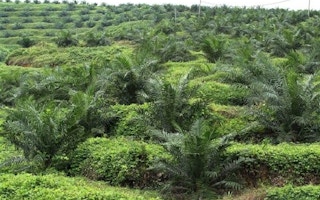Sime Darby Plantation, one of the world’s largest palm oil companies, has withdrawn from the High Carbon Stock Approach (HCSA), a methodology companies use to implement commitments to stop cutting down forests.
To continue reading, subscribe to Eco‑Business.
There's something for everyone. We offer a range of subscription plans.
- Access our stories and receive our Insights Weekly newsletter with the free EB Member plan.
- Unlock unlimited access to our content and archive with EB Circle.
- Publish your content with EB Premium.
The Kuala Lumpur-headquartered company said that budgetary constraints brought on by the Covid-19 pandemic prompted its departure from the HCSA, of which it was a steering committee member.
Sime Darby’s head of group sustainability, Rashyid Anwarudin, told Eco-Business that that the company has had to assess all of its sustainability activities and platforms since the coronavirus outbreak, and undergo a “prioritisation process”.
“HSCA wasn’t considered high priority,” he said. “We want to spend our limited resources on the implementation of our sustainability commitments on the ground, and on engaging with our suppliers.”
”When things get better we may reconsider re-engaging with HCSA,” Rashyid said, adding that the firm remains committed to implementing the HCSA methodology.
Sime Darby Plantation announced a plan to weed deforestation out of its supply chain a year ago, but continues to face sustainability issues. The company was linked to peatland fires in Indonesia and human rights violations in Liberia last year.
Sime Darby’s exit comes a few months after rival palm oil firm Wilmar International quit HCSA, citing governance concerns.
Environmental campaign group Greenpeace, which co-chairs HCSA, said that the departure of Wilmar and Sime Darby from HCSA raises questions about their ability to stick to their no-deforestation commitments.
The HCSA, which uses satellite imagery, surveys and dialogue with local communities to determine which forests should be conserved and which land can be developed, was founded in 2014 and adopted by the industry certifier Roundtable on Sustainable Palm Oil in 2018.
Grant Rosoman, forest solutions team leader at Greenpeace and an executive committee member of HCSA, said the organisation is working on broadening its focus to include smallholder farmers, and recently welcomed palm oil firm Cargill as a new member.
The HCSA estimates it will prevent between 8 million and 10 million hectares of forests from being cut down by 2030.








